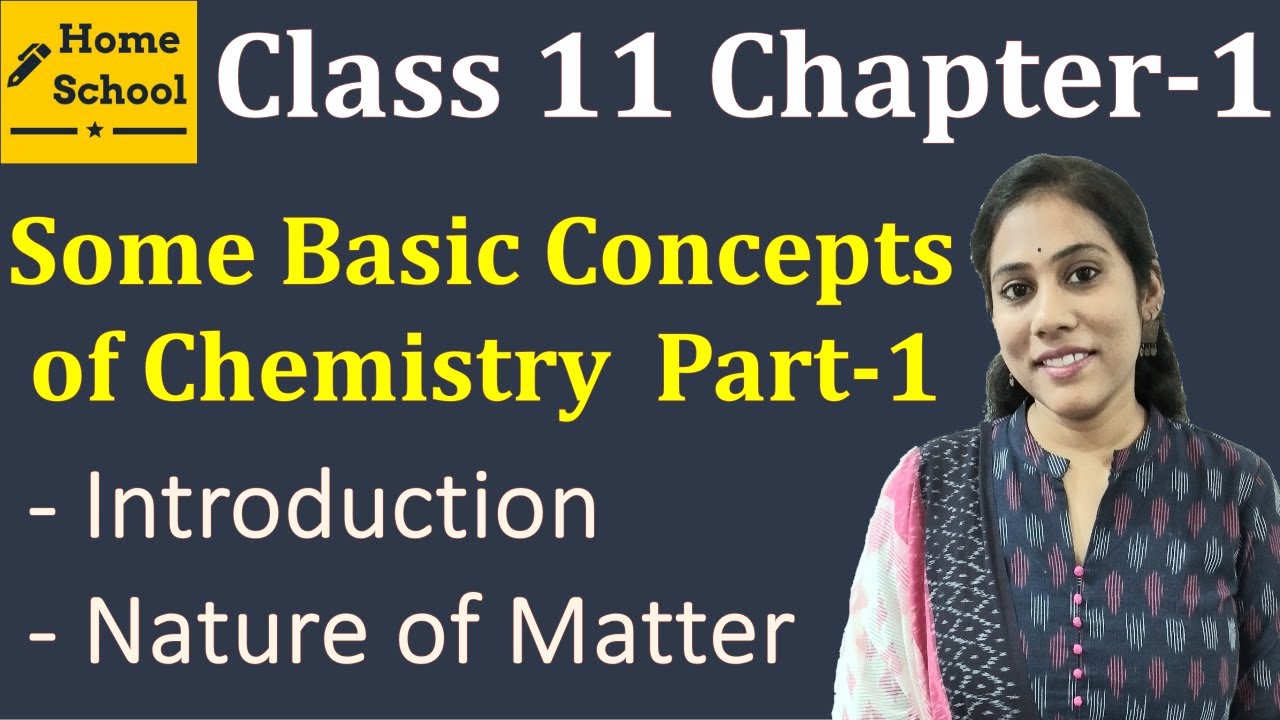01 02PP01 1StudyofMatter
Summary
TLDRThis video introduces the fundamental concepts of chemistry, focusing on the study of matter and its properties. It explains that matter is anything with mass and volume, and chemistry examines how substances interact and change. The instructor discusses the scientific method, emphasizing observation, experimentation, and theory validation. Key topics include the classification of matter (solids, liquids, gases), mixtures (homogeneous and heterogeneous), and properties of matter (physical and chemical). The session also highlights the importance of data collection, both quantitative and qualitative, in understanding the nature of matter.
Takeaways
- 🔬 Chemistry is the study of matter, which includes anything that has mass and occupies space.
- 🧪 Chemistry has a long history, evolving from alchemy and branching into various fields such as organic, inorganic, physical, analytical, and biochemistry.
- 🌍 Everything around us, from fire to food to electronics, involves chemistry in some form.
- ⚗️ The scientific method is crucial for conducting sound science, involving steps like observation, hypothesis, experimentation, theory formation, and the establishment of laws.
- 🌡 Matter exists in three phases: solid, liquid, and gas, with molecules arranged differently in each phase.
- 🍵 Matter can be classified as either a mixture or a substance, with mixtures being further divided into homogeneous and heterogeneous types.
- ⚖️ Substances can be either elements (pure forms like gold) or compounds (combinations of elements).
- 🔄 Physical changes, such as melting or freezing, do not change the chemical identity, while chemical changes, like cooking, are often irreversible.
- 📊 Data in chemistry is classified as either quantitative (numerical) or qualitative (descriptive).
- 🧲 Properties of matter are divided into extensive (dependent on amount, like mass) and intensive (independent of amount, like boiling point).
Q & A
What is the definition of matter in chemistry?
-Matter is anything that has mass and occupies space, meaning it has volume and can be contained, weighed, and studied.
How did chemistry evolve from alchemy?
-Chemistry evolved from alchemy over time, becoming recognized as a formal science about 300 years ago. Earlier scientific discoveries such as fire, medicine, and metallurgy all involved chemistry before the term became formalized.
What are the major branches of chemistry mentioned in the script?
-The major branches of chemistry are organic, inorganic, physical, analytical, biochemistry, and more recent fields like nuclear and protein chemistry.
How is chemistry part of everyday life?
-Chemistry is involved in everyday activities such as brushing teeth, using soap, eating, and using electronic devices. Everything from food to technology involves chemicals.
What is the scientific method and why is it important in chemistry?
-The scientific method is a systematic process followed by scientists to ensure their research is valid and reliable. It involves observation, hypothesis formation, experimentation, peer review, and the development of theories and laws.
What is the difference between a hypothesis and a theory?
-A hypothesis is an educated guess based on observation, whereas a theory is a well-tested explanation that has been validated by experimentation and peer review.
What are the three phases of matter?
-The three phases of matter are solid, liquid, and gas. In solids, molecules are tightly packed, in liquids, they are closer but can move, and in gases, molecules are far apart and free-moving.
How are mixtures classified in chemistry?
-Mixtures are classified into two types: homogeneous mixtures, which are uniform and look the same throughout, and heterogeneous mixtures, where the components are visibly distinct.
What is the difference between a physical change and a chemical change?
-A physical change alters the appearance or phase of matter without changing its chemical composition (e.g., melting ice), while a chemical change alters the substance itself and is irreversible (e.g., boiling an egg).
What is the difference between extensive and intensive properties?
-Extensive properties depend on the amount of matter (e.g., mass, volume), while intensive properties do not depend on the quantity of matter (e.g., boiling point, density).
Outlines

Этот раздел доступен только подписчикам платных тарифов. Пожалуйста, перейдите на платный тариф для доступа.
Перейти на платный тарифMindmap

Этот раздел доступен только подписчикам платных тарифов. Пожалуйста, перейдите на платный тариф для доступа.
Перейти на платный тарифKeywords

Этот раздел доступен только подписчикам платных тарифов. Пожалуйста, перейдите на платный тариф для доступа.
Перейти на платный тарифHighlights

Этот раздел доступен только подписчикам платных тарифов. Пожалуйста, перейдите на платный тариф для доступа.
Перейти на платный тарифTranscripts

Этот раздел доступен только подписчикам платных тарифов. Пожалуйста, перейдите на платный тариф для доступа.
Перейти на платный тарифПосмотреть больше похожих видео

PENGENALAN ILMU KIMIA

Some Basic Concepts of Chemistry Class 11 Part 1

Some Basic Concepts Of Chemistry | Full Chapter | Class 11 | Chapter 1 | Science

propiedades intensivas y extensivas de la materia

HAKIKAT ILMU KIMIA | Cabang Ilmu Kimia | Peranan Ilmu Kimia | KIMIA X

Química Orgânica - Introdução à orgânica - Parte 1
5.0 / 5 (0 votes)
